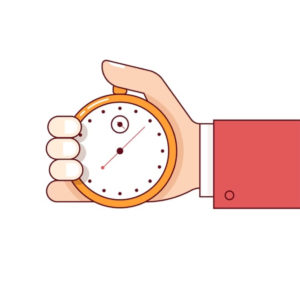
01 Aug When Should a Business Consider Using a Time Clock for Payroll
When Should a Business Consider Using a Time Clock for Payroll?
Running a business efficiently often comes down to effective time and resource management. One of the crucial aspects in this regard is payroll management, and an essential tool for this purpose is a time clock. This article delves into the benefits of a time clock for payroll and identifies situations in which businesses should consider its use.
What is a Time Clock?
A time clock, or a time recorder, is a device that records the start and end times for employees’ work. The data collected by the time clock is used for payroll processing, ensuring accurate payment for work hours.
Evolution of Time Clocks
Time clocks have evolved significantly over the years. While traditional models involved manual punch-in and punch-out systems, modern time clocks are digital, utilizing advanced technologies like biometrics, RFID tags, and even facial recognition. They offer a more accurate, secure, and efficient way to track employees’ working hours.
The Advantages of Using a Time Clock for Payroll
Before we delve into when a business should consider using a time clock, it’s important to understand its benefits:
Accurate Payroll Processing
The primary advantage of a time clock is accuracy. Automated time tracking minimizes errors common with manual entries and provides a precise record of each employee’s working hours. This ensures employees are paid accurately for their work.
Time Saving
Time clocks streamline the payroll process by automatically recording work hours, thereby reducing the administrative time needed for manual tracking. Payroll staff can focus on other critical tasks, enhancing overall productivity.
Enhanced Compliance
Regulatory bodies often require businesses to maintain accurate records of employee work hours. Time clocks automate this process, ensuring businesses adhere to labor laws and avoid potential penalties.
Employee Morale and Trust
Transparency in payroll processing boosts employee morale and trust. When employees know their work hours are accurately recorded and rewarded, they are likely to be more engaged and satisfied.
Helps Avoid Buddy Punching
Time clocks, particularly those with biometric features, help to prevent buddy punching – the practice of one employee clocking in for another. Biometrics like fingerprints or facial recognition ensure that the person clocking in is indeed the employee assigned to that particular ID. This ensures honest reporting of hours worked, improving payroll accuracy. Additionally, it fosters a culture of accountability and integrity among employees, which is beneficial for the overall work environment.
Helps to avoid payroll errors
Time clocks automate the process of recording employee work hours, minimizing the chance for human error associated with manual entry. They provide precise, real-time data, ensuring employees are paid accurately for their actual work hours. This reduces the likelihood of overpayments or underpayments, leading to more accurate and fair payroll. As such, time clocks not only streamline payroll processing, but also significantly decrease the incidence of payroll errors, saving both time and money for businesses.
When Should a Business Consider Using a Time Clock?
Transitioning from Small to Medium-sized Business
As a business grows, managing payroll manually becomes increasingly complex. When transitioning from a small to a medium-sized business, adopting a time clock system can help maintain payroll accuracy and efficiency.
Increase in Employee Discrepancies
If a business frequently encounters discrepancies in work hours or pay, implementing a time clock can solve these issues. This will ensure employees are paid for the exact time they work, eliminating disputes and avoiding buddy punching.
Regulatory Demands
For businesses operating in industries with strict labor laws and regulations, a time clock is a practical necessity. It helps businesses stay compliant by keeping accurate and systematic records of employees’ work hours.
Need for Improved Productivity
If a business seeks to improve productivity, a time clock system can help. By automating time tracking, businesses free up resources that can be allocated to other productive tasks.
Conclusion
The decision to use a time clock for payroll depends on the specific needs of a business. It’s a powerful tool that offers numerous benefits such as improved payroll accuracy, enhanced compliance, and increased productivity. Whether a business is growing, dealing with payroll discrepancies, facing regulatory demands, or simply striving for improved productivity




